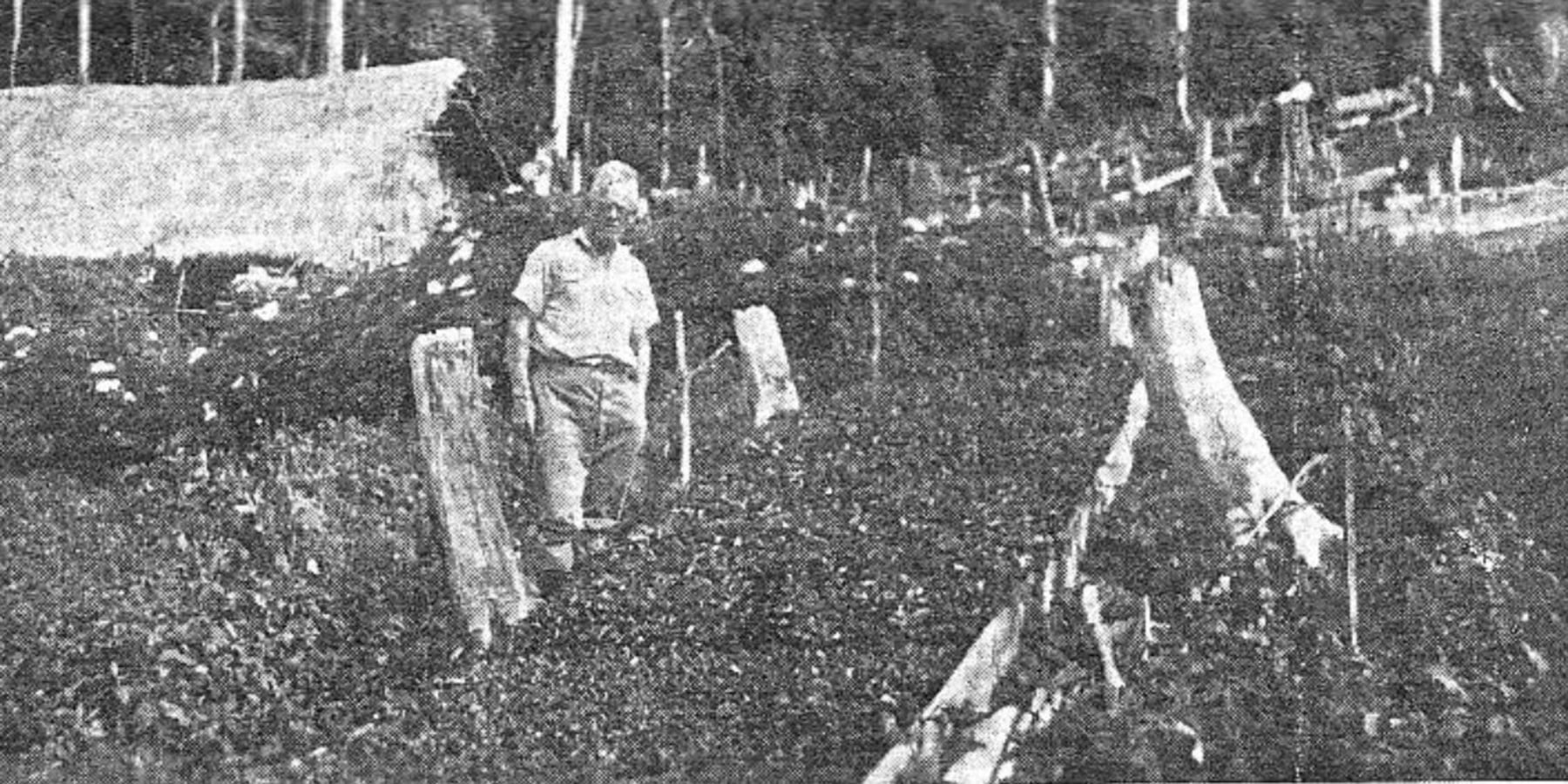
Leendert Konijn Menanam Jeruk di Kaki Sinabung (1932)
Leendert (Leen) Konijn was born in Zwammerdam, January 28, 1899 and he was a Dutch rubber producer (1920-1930) and a cultivator of orange Navel and various citrus fruits in Lau Kawar, Sinabung, North Sumatra, Dutch East Indies (1932-1942).
Leendert Konijn is the eldest of twelve children. His parents, Jan Konijn, a baker. Konijn grew up in a small village in the western part of Netherlands near the towns of Zwammerdam and Boskoop. After completing his studies, Konijn applied for a job as a rubber planter with Rotterdam Cultuur Maatschappij (RCM). RCM was looking for young adventurers, interested in working in rubber plantations in South Tapanuli District, North Sumatra, the Dutch East Indies.
In 1920, at the age of 21, Konijn boarded a freighter and left Holland to Medan, Sumatra - the Netherlands East Indies. Tapanuli rubber plantation became an excellent learning experience for Konijn and in September 1927 he was promoted to the position of acting Administrator (plantation manager).
In May 1928, Konijn returned to Netherlands. He met his future wife, Anne-Marie Isaacs (born in Rotterdam, August 6, 1905). They married in Rotterdam on 14 November 1928. Konijn and Anne Marie Isaacs had four children, three daughters and one son. Her son was just 1 year, when he died.
The great depression of August 1929 caused a huge drop in rubber prices. This resulted in heavy financial losses for RCM and consequently, many small holders lost their jobs. In the early 1930s, the RCM transferred Konijn to Assistant positions on their smaller plantations in Badiri, Central Tapanuli, North Sumatra, the Netherlands Indies, but also this position ended in late 1930.
Due to the ongoing economic crisis and the lack of work in rubber cultivation, Konijn pioneered to find new business in Sumatra. He discovered that the fertile volcanic earth of Mount Sinabung is ideal for planting citrus fruits. He intends to grow oranges that are of the same quality as the oranges from California.
He can get 20 hectares of land at the foot of Mount Sinabung near Lau Kawar lake. This land belongs to Sibayak and with the help of the Dutch Governor an agreement was reached. In March 1932 Konijn he started "Lao Kawar Orange Cultivation." With help from the Dutch Ministry of Agriculture, Konijn successfully imported 1800 citrus seeds from California. Navel cultivation is the main product. However, it also cultivates small-scale lemons (Villafranca and Ponderosa) and grapes. From 1932 to 1942 the Konijn family lived a simple life near Lake Lau Kawar.
Their first house was built of bamboo. With a great courage and determination, this young family managed to survive in the jungle wilderness, 25 kilometers away from the city of Medan. The colonial newspapers such as "Koran Soerabaja" (article dated Tuesday, March 3, 1936 entitled "Door Indies Grootste Eiland" ("Touring the Dutch-Indies Archipelago") published articles on the Konijn Family.
Orange cultivation is a big success. Only the Japanese invasion that caused the Second World War in Asia was the reason behind the failure of this promising initial venture. In early 1942, the Japanese accused Konijn of having a radio. For this reason, he was imprisoned in Berastagi. Later that same year Leendert Konijn was transferred to a Japanese concentration camp for men in Berastagi. The Konijn name appeared on the camp's death list.
Because of his very weak state, he was brought to the camp hospital. Konijn survived and reunited with his family in August 1945. At the end of March 1942 (three months after Konijn was taken to prison) Anne Marie Isaacs and her three daughters were also taken to a Japanese concentration camp for women in Berastagi. In June 1945, the detention camp was closed and women and children were transferred to the "Aek Pamienke" camp. Anne Marie Isaacs and her three daughters also survived the prison camp and were released in August 1945.
From 1946 to 1948 Konijn worked for the Red Cross in Medan. In early 1946 Anne Marie Konijn and their two daughters left for Holland to restore their health. Her eldest daughter stayed with her father in Medan, a year later her daughter returned to Holland.
In 1948, Konijn saw an opportunity to start a wholesale fertilizer business in Kabanjahe. Anne Marie Isaacs and her two daughters joined her there that same year. Although Indonesia's war of independence was raging, the family chose to remain there inspite of the danger.
In 1959, Konijn left Indonesia and went back to Holland and never returned. He died at Gorinchem on September 16, 1977. Anne Marie Isaacs died in Gorinchem on 20 May 1979.

